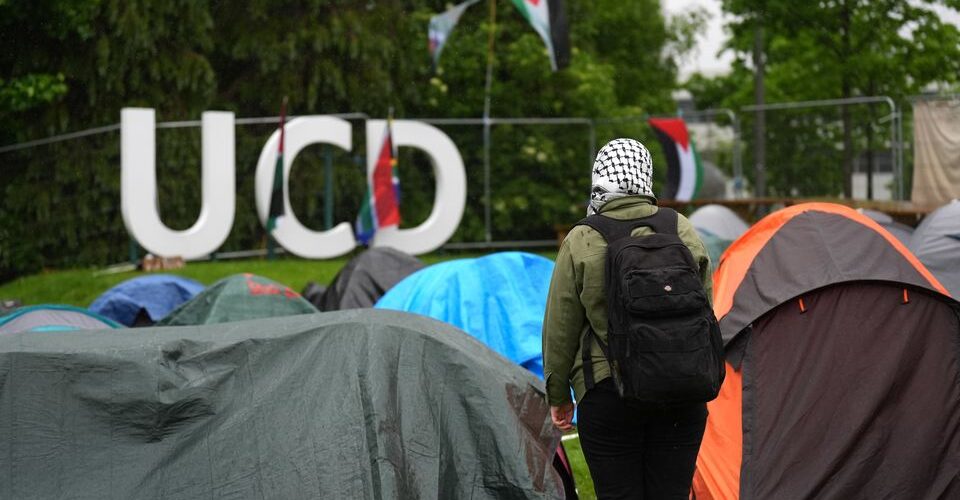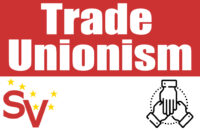The misery of academia in Ireland today reflects the deep subordination of intellectual life to the intertwined forces of Zionism, capital, and militarised research. The Irish university has become an instrument of Zionist-dominated imperialist, geopolitical, and corporate power. Ireland’s universities now operate under the neoliberal laws of profit, where the language of innovation, excellence, and partnership masks a system of exploitation and ideological control. The bullet of imperial violence is now coated in the sweet chocolate of digital progress: the weapon is soft power, and its ammunition is information.
Corporate monopolies such as Google, Meta, and the expanding artificial-intelligence sector have woven themselves into the fabric of Irish education and research. Their influence extends far beyond sponsorship; they shape the intellectual terrain on which students and academics think, speak, and act. Elections, policy debates, and even scholarly frameworks are increasingly mediated by corporate technologies that reproduce capitalist and imperial hierarchies. The university is a site of managed thought, where inquiry is tolerated only when it aligns with market or geopolitical interests.
This submission of academia has been laid bare in recent controversies at University College Dublin. A University Observer article of 14 October titled, “UCD Societies Fear Possible Sanctions for Pro-Palestine Social Media Posts,” revealed an atmosphere in which student organisations risk punishment simply for expressing solidarity with the Palestinian people. The management’s rhetoric of neutrality operates as a mechanism of silencing, transforming the university’s claim to academic freedom into a shield for institutional complicity.
UCD President Orla Feely confirmed this logic when she explained that the university’s external agreements “explicitly did not include any commitment to breaking links with Israeli institutions,” while insisting that participation in such collaborations “is up to the academics involved.” By reframing the issue as one of personal choice, the university avoids any institutional responsibility for research partnerships tied to military or surveillance industries. If Albert Einstein had claimed “academic freedom” to develop the atomic bomb for the Nazi regime, would that have been considered acceptable? Feely’s version of freedom ignores the moral and political context in which academic work takes place; she defends procedure over principle.
The hypocrisy becomes clearer when compared with UCD’s own record. In response to Russia’s invasion of Ukraine, the university swiftly cut all institutional ties with Russian bodies and announced academic protections for Ukrainian staff and students. This was widely praised as a moral stance. Yet no such measures are extended to Palestinians enduring decades of dispossession and genocidal barbarism. This double standard is rooted in the racialised hierarchies of Western geopolitics. The suffering of some people is treated as politically urgent; the suffering of others as inconvenient.
Under the current order, resistance within Irish universities is not only discouraged, it is rendered invisible. Symbols of solidarity are removed from campus spaces, and dissenting voices are managed through bureaucratic procedures. The result is a moral and intellectual deficit: universities that celebrate diversity yet suppress political conscience, that speak of ethics while collaborating with systems of Zionist, militarised research and digital surveillance. Reputation replaces responsibility; the pursuit of truth is subordinated to the pursuit of funding.
Against this backdrop, the idea launched by Social Rights Ireland, ‘Break the Academic Chains of Zionism’, marks a decisive act of intellectual resistance. It challenges the complicity of Irish academia. It is a call for sovereignty. The encampment at UCD has opened a new intellectual window onto the relationship between knowledge and power. To break the academic chains is not a slogan but a necessity: a struggle to reclaim education from the market, from Zionist ideological management, and from the technologies of consent that mask exploitation.
Our new banner declares: “Solidarity with Palestinian liberation through the decolonisation of Ireland.” This is a statement of purpose. Support for Palestine that ignores Ireland’s own entanglement in imperial systems is hollow—a gesture of charity, not solidarity. The same neoliberal and geopolitical chains bind our universities and our politics alike.
We are not silenced only by university management but by a broader culture that fears genuine anti-imperialist thought. Even among self-described radicals, few can imagine liberation beyond the limits set by the European Union and Zionist-dominated Western alliances. Nonetheless, this isolation has clarified our struggle. Those who refuse to confront empire cannot claim to stand for liberation, anywhere.
Breaking the academic chains is the practical work of decolonising knowledge, of confronting the forces that shape both Irish and Palestinian subjugation—both external Zionist imperialist domination and internal dependency. Linking the liberation of Palestine with the decolonisation of Ireland affirms that intellectual sovereignty and economic and political sovereignty are inseparable.






